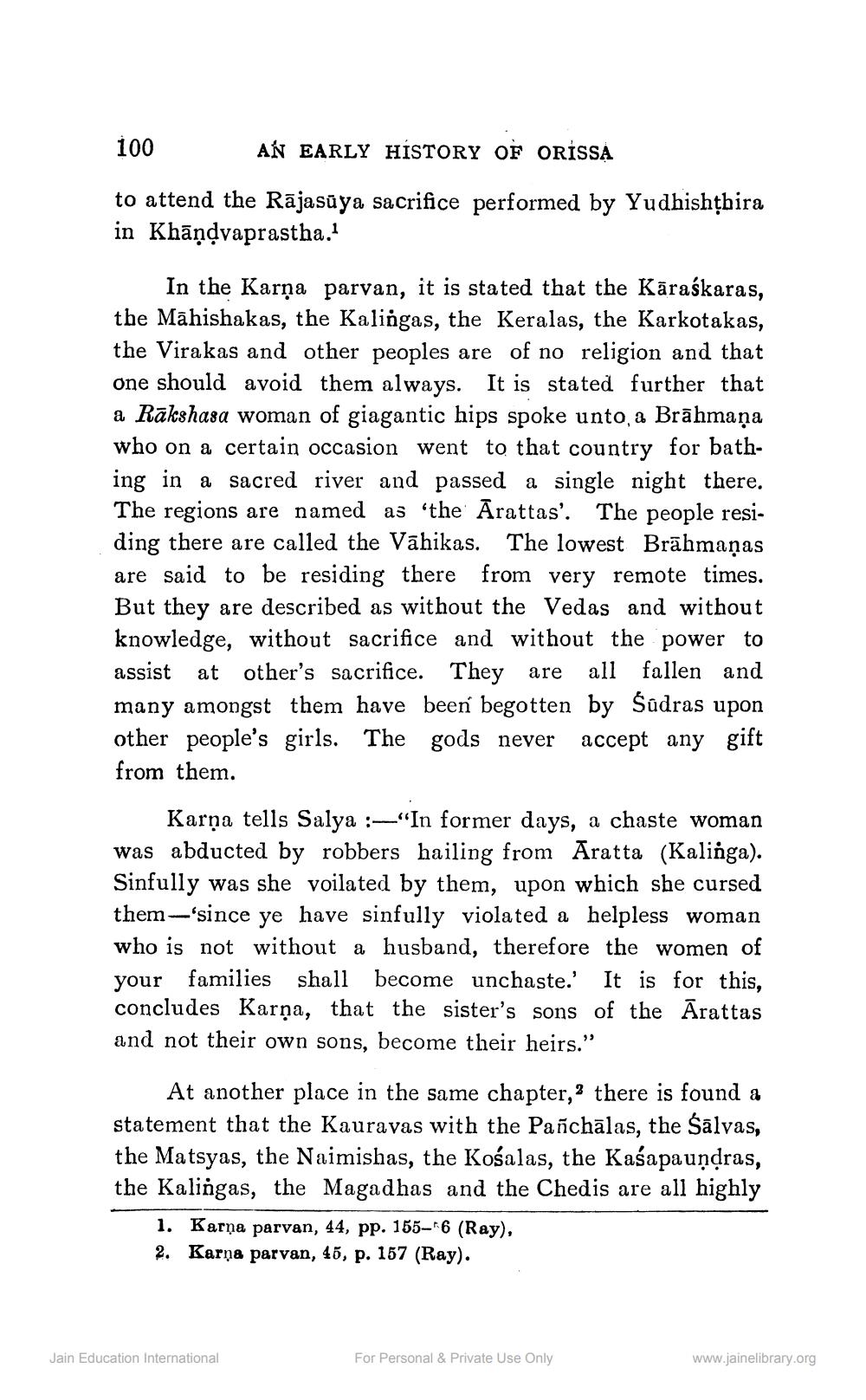________________
100 AN EARLY HISTORY OF ORISSA to attend the Rājasūya sacrifice performed by Yudhishthira in Khāņdvaprastha.
In the Karņa parvan, it is stated that the Kāraśkaras, the Māhishakas, the Kalingas, the Keralas, the Karkotakas, the Virakas and other peoples are of no religion and that one should avoid them always. It is stated further that a Rākshasa woman of giagantic hips spoke unto, a Brāhmaṇa who on a certain occasion went to that country for bathing in a sacred river and passed a single night there. The regions are named as 'the Arattas'. The people residing there are called the Vāhikas. The lowest Brāhmaṇas are said to be residing there from very remote times. But they are described as without the Vedas and without knowledge, without sacrifice and without the power to assist at other's sacrifice. They are all fallen and many amongst them have been begotten by Sūdras upon other people's girls. The gods never accept any gift from them.
Karņa tells Salya :-"In former days, a chaste woman was abducted by robbers hailing from Aratta (Kalinga). Sinfully was she voilated by them, upon which she cursed them—'since ye have sinfully violated a helpless woman who is not without a husband, therefore the women of your families shall become unchaste.' It is for this, concludes Karņa, that the sister's sons of the Ārattas and not their own sons, become their heirs."
At another place in the same chapter, there is found a statement that the Kauravas with the Panchālas, the Śālvas, the Matsyas, the Naimishas, the Kośalas, the Kaśapaundras, the Kalingas, the Magadhas and the Chedis are all highly
1. Karņa parvan, 44, pp. 155–6 (Ray), 2. Karna parvan, 45, p. 157 (Ray).
Jain Education International
For Personal & Private Use Only
www.jainelibrary.org




